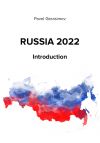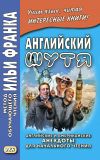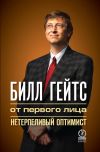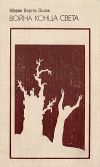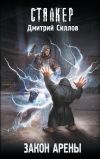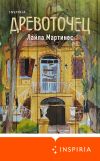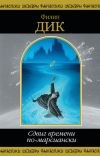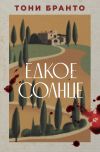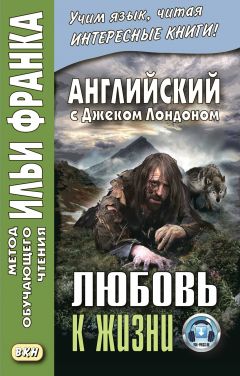
Автор книги: Джек Лондон
Жанр: Иностранные языки, Наука и Образование
Возрастные ограничения: +16
сообщить о неприемлемом содержимом
Текущая страница: 4 (всего у книги 25 страниц) [доступный отрывок для чтения: 8 страниц]
dozen [dʌzn], resume [rɪ’zju:m], crawl [krɔ:l]
He exhausted the mother ptarmigan; but he exhausted himself. She lay panting on her side. He lay panting on his side, a dozen feet away, unable to crawl to her. And as he recovered she recovered, fluttering out of reach as his hungry hand went out to her. The chase was resumed. Night settled down and she escaped. He stumbled from weakness and pitched head foremost on his face, cutting his cheek, his pack upon his back. He did not move for a long while; then he rolled over on his side, wound his watch, and lay there until morning.
Another day of fog (еще один туманный день). Half of his last blanket had gone into foot-wrappings (половина его последнего одеяла ушла на обмотки для ног). He failed to pick up Bill’s trail (ему не удалось напасть на след Билла; to pick up the trail – напасть на след). It did not matter (это не имело значения; to matter – иметь значение; значить). His hunger was driving him too compellingly (голод гнал его слишком неодолимо) – only – only he wondered (только – только ему было интересно; to wonder – интересоваться; желать знать) if Bill, too, were lost (не заблудился ли Билл тоже). By midday the irk of his pack became too oppressive (к полудню утомление от его рюкзака стало слишком тягостным; to irk – изнурять, утомлять). Again he divided the gold (снова он разделил золото), this time merely spilling half of it on the ground (на этот раз просто высыпав половину его на землю; to spill – рассыпать/ся/). In the afternoon he threw the rest of it away (во второй половине дня он выбросил остаток его), there remaining to him only the half-blanket, the tin bucket, and the rifle (/после чего/ у него осталось лишь пол-одеяла, оловянное ведро и ружье).
An hallucination began to trouble him (его начала тревожить одна галлюцинация). He felt confident that one cartridge remained to him (он чувствовал уверенность: «чувствовал /себя уверенным» в том, что у него остался один патрон). It was in the chamber of the rifle and he had overlooked it (он = патрон был в патроннике ружья, и он не заметил его; to overlook – не заметить, просмотреть, пропустить). On the other hand (с другой стороны), he knew all the time that the chamber was empty (он все время знал, что патронник пуст). But the hallucination persisted (но галлюцинация упорствовала; to persist – упорствовать; сохраняться, продолжать существовать; устоять). He fought it off for hours (он отбивался от нее несколько часов: «часами»; to fight off – отбить, отогнать, выгнать), then threw his rifle open and was confronted with emptiness (затем он раскрыл ружье и столкнулся лицом к лицу с пустотой; to confront – противостоять, смотреть в лицо; сталкиваться лицом к лицу; сталкивать; делать очную ставку). The disappointment was as bitter as though he had really expected to find the cartridge (разочарование было таким горьким, как будто он действительно надеялся найти патрон; to expect – надеяться, предполагать).
wonder [‘wʌndǝ], hour [‘aʋǝ], disappointment [,dɪsǝ’pɔɪntmǝnt]
Another day of fog. Half of his last blanket had gone into foot-wrappings. He failed to pick up Bill’s trail. It did not matter. His hunger was driving him too compellingly – only – only he wondered if Bill, too, were lost. By midday the irk of his pack became too oppressive. Again he divided the gold, this time merely spilling half of it on the ground. In the afternoon he threw the rest of it away, there remaining to him only the half-blanket, the tin bucket, and the rifle.
An hallucination began to trouble him. He felt confident that one cartridge remained to him. It was in the chamber of the rifle and he had overlooked it. On the other hand, he knew all the time that the chamber was empty. But the hallucination persisted. He fought it off for hours, then threw his rifle open and was confronted with emptiness. The disappointment was as bitter as though he had really expected to find the cartridge.
He plodded on for half an hour (он брел вперед уже полчаса; to plod on – с трудом брести, еле тащиться, волочить ноги), when the hallucination arose again (когда снова появилась галлюцинация; to arise – возникать, появляться). Again he fought it (он опять боролся с ней), and still it persisted (а она все еще упорствовала), till for very relief he opened his rifle to unconvince himself (пока просто для облегчения он не раскрыл ружье, чтобы разубедить себя; to convince – убеждать). At times his mind wandered farther afield (временами его разум отклонялся дальше в сторону от пути; afield – в стороне от пути), and he plodded on (и он волочил ноги), a mere automaton (полный автомат = совершенно автоматически; mere – абсолютный, совершенный, полный; простой, не более чем, всего лишь), strange conceits and whimsicalities gnawing at his brain like worms (/при этом/ необычные причудливые образы и странности = странные видения терзали его мозг, как черви; whimsicality – прихотливость, причудливость, странность; to gnaw at – грызть, глодать; беспокоить, терзать). But these excursions out of the real were of brief duration (но эти экскурсии вне реальности были короткими по продолжительности: «короткой продолжительности»), for ever the pangs of the hunger-bite called him back (ибо всегда муки от остроты голода = острого голода призывали его обратно; bite – укус; едкость, острота). He was jerked back abruptly once from such an excursion by a sight (один раз он был резко выдернут обратно с такой экскурсии зрелищем; to jerk – резко толкать, дергать) that caused him nearly to faint (которое чуть не вызвало у него обморок; to cause – послужить причиной/поводом для чего-либо; to faint – падать в обморок). He reeled and swayed (он пошатнулся и закачался; to reel – кружиться, вертеться; покачнуться, пошатнуться /от удара, потрясения и т. п./; to sway – качаться, колебаться), doddering like a drunken man to keep from falling (идя неверной походкой, как пьяный /человек/, чтобы не упасть; to dodder – идти неверной походкой, плестись, ковылять; to keep from – удерживать/ся/, воздерживаться от чего-либо). Before him stood a horse (перед ним стояла лошадь). A horse (лошадь)! He could not believe his eyes (он не мог поверить своим глазам). A thick mist was in them (в них был густой туман; mist – туман; дымка), intershot with sparkling points of light (перемежаемый сверкающими точками света; to sparkle – искриться; сверкать). He rubbed his eyes savagely to clear his vision (он яростно потер глаза, чтобы прояснить видение; savagely – разгневанно, в ярости, взбешенно; savage – дикий /находящийся в первобытном состоянии, не подвергшийся воздействию человека/; жестокий, беспощадный, злой, свирепый), and beheld, not a horse, but a great brown bear (и узрел не лошадь, а огромного бурого медведя; to behold – видеть, замечать, узреть). The animal was studying him with bellicose curiosity (животное изучало его с агрессивным любопытством; bellicose – воинственный, воинствующий; агрессивный, враждебный).
hallucination [hǝ,lu:sɪ’neɪʃn], conceit [kǝn’si:t], excursion [ɪks’kǝ:ʃn], savage [‘sævɪʤ], bellicose [‘belɪkǝʋs]
He plodded on for half an hour, when the hallucination arose again. Again he fought it, and still it persisted, till for very relief he opened his rifle to unconvince himself. At times his mind wandered farther afield, and he plodded on, a mere automaton, strange conceits and whimsicalities gnawing at his brain like worms. But these excursions out of the real were of brief duration, for ever the pangs of the hunger-bite called him back. He was jerked back abruptly once from such an excursion by a sight that caused him nearly to faint. He reeled and swayed, doddering like a drunken man to keep from falling. Before him stood a horse. A horse! He could not believe his eyes. A thick mist was in them, intershot with sparkling points of light. He rubbed his eyes savagely to clear his vision, and beheld, not a horse, but a great brown bear. The animal was studying him with bellicose curiosity.
The man had brought his gun halfway to his shoulder (человек донес ружье уже на полпути к плечу) before he realized (прежде чем осознал = чем до него дошло; to realize – понимать, осознавать). He lowered it and drew his hunting-knife from its beaded sheath at his hip (он опустил его и вытащил свой охотничий нож из ножен, украшенных бисером, на бедре). Before him was meat and life (перед ним было мясо и жизнь). He ran his thumb along the edge of his knife (он провел большим пальцем по лезвию ножа). It was sharp (оно было острым). The point was sharp (острие было острым). He would fling himself upon the bear and kill it (он набросится на медведя и убьет его). But his heart began its warning thump, thump, thump (но его сердце начало свое предупреждение – бух-бух-бух). Then followed the wild upward leap and tattoo of flutters (затем последовал дикий скачок вверх и барабанная дробь неровного биения сердца; flutter – дрожание, трепетание; пульсация; to flutter – неровно биться /о сердце/; пульсировать), the pressing as of an iron band about his forehead (сдавливание железным обручем его лба), the creeping of the dizziness into his brain (крадущееся проникновение головокружения в его мозг; to creep – красться, подкрадываться; creeping – подкрадывание, движение крадучись, ползание; проскальзывание).
thumb [θʌm], warning [‘wɔ:nɪŋ], tattoo [tǝ’tu:]
The man had brought his gun halfway to his shoulder before he realized. He lowered it and drew his hunting-knife from its beaded sheath at his hip. Before him was meat and life. He ran his thumb along the edge of his knife. It was sharp. The point was sharp. He would fling himself upon the bear and kill it. But his heart began its warning thump, thump, thump. Then followed the wild upward leap and tattoo of flutters, the pressing as of an iron band about his forehead, the creeping of the dizziness into his brain.
His desperate courage was evicted by a great surge of fear (его отчаянная смелость была изгнана огромной волной страха; surge – большая волна; волны; подъем, рост; всплеск). In his weakness, what if the animal attacked him (при его-то слабости, а что если зверь нападет на него)? He drew himself up to his most imposing stature (он выпрямился в свой самый внушительный рост; to draw oneself up – выпрямляться, вытягиваться), gripping the knife and staring hard at the bear (сжав нож и враждебно уставившись на медведя; hard – твердый; упрямо, неуступчиво; резко, грубо; враждебно; неистово, яростно). The bear advanced clumsily a couple of steps (медведь неуклюже продвинулся на пару шагов вперед), reared up, and gave vent to a tentative growl (встал на дыбы и дал выход пробному рыку; to rear up – становиться на дыбы /например, о лошади/; to give vent to – дать выход чему-либо). If the man ran (если бы человек побежал), he would run after him (он бы побежал за ним); but the man did not run (но человек не побежал). He was animated now with the courage of fear (теперь он = человек был воодушевлен храбростью страха). He, too, growled, savagely, terribly (он тоже зарычал свирепо, ужасно), voicing the fear (выражая страх) that is to life germane (который тесно связан с жизнью; germane – уместный, подходящий, соответствующий; тесно связанный) and that lies twisted about life’s deepest roots (и который лежит, свернувшись, у самых глубоких корней жизни; to twist – крутить, сплетать/ся/; обвивать, обхватывать).
stature [‘stæʧǝ], couple [kʌpl], courage [‘kʌrɪʤ]
His desperate courage was evicted by a great surge of fear. In his weakness, what if the animal attacked him? He drew himself up to his most imposing stature, gripping the knife and staring hard at the bear. The bear advanced clumsily a couple of steps, reared up, and gave vent to a tentative growl. If the man ran, he would run after him; but the man did not run. He was animated now with the courage of fear. He, too, growled, savagely, terribly, voicing the fear that is to life germane and that lies twisted about life’s deepest roots.
The bear edged away to one side (медведь отошел бочком в сторону; to edge away – отходить осторожно, бочком), growling menacingly (угрожающе рыча; menace – угроза; опасность; to menace – грозить, запугивать), himself appalled by this mysterious creature (сам напуганный этим таинственным существом) that appeared upright and unafraid (которое оказалось прямоходящим и бесстрашным; upright – вертикальный, прямой; afraid – боящийся). But the man did not move (но человек не двигался). He stood like a statue till the danger was past (он стоял, как статуя, пока не миновала опасность; past – прошлый, минувший; былой, истекший, прошедший), when he yielded to a fit of trembling and sank down into the wet moss (когда он поддался приступу дрожи и опустился в сырой мох).
He pulled himself together and went on (он собрался с духом и продолжил путь), afraid now in a new way (теперь боясь по-новому). It was not the fear that he should die passively from lack of food (это был не страх, что он умрет пассивно от нехватки пищи), but that he should be destroyed violently (а что он будет убит насильственно = насильственным образом; to destroy – разрушать; истреблять, уничтожать; лишать жизни, убивать) before starvation had exhausted the last particle of the endeavor in him that made toward surviving (прежде чем голод израсходует последнюю частицу того стремления в нем, которое толкало его к выживанию; to survive – выжить). There were the wolves (/там/ были волки). Back and forth across the desolation drifted their howls (взад и вперед по пустоши проносились их завывания; to drift – сноситься, смещаться, сдвигаться по ветру, по течению, дрейфовать), weaving the very air into a fabric of menace (сплетая сам воздух в волокно угрозы = соткав из самого воздуха угрозу; to weave a fabric – ткать) that was so tangible that he found himself, arms in the air (которая была так осязаема, что он обнаружил, что /поднял/ руки в воздух), pressing it back from him as it might be the walls of a wind-blown tent (отталкивая ее назад от себя, словно это были стены обдуваемой ветром палатки).
menace [‘menɪs], growl [ɡraʋl], yield [ji:ld], endeavor [ɪn’devǝ]
The bear edged away to one side, growling menacingly, himself appalled by this mysterious creature that appeared upright and unafraid. But the man did not move. He stood like a statue till the danger was past, when he yielded to a fit of trembling and sank down into the wet moss.
He pulled himself together and went on, afraid now in a new way. It was not the fear that he should die passively from lack of food, but that he should be destroyed violently before starvation had exhausted the last particle of the endeavor in him that made toward surviving. There were the wolves. Back and forth across the desolation drifted their howls, weaving the very air into a fabric of menace that was so tangible that he found himself, arms in the air, pressing it back from him as it might be the walls of a wind-blown tent.
Now and again the wolves, in packs of two and three, crossed his path (время от времени волки, стаями из двух и трех, пересекали ему путь; path – тропа). But they sheered clear of him (но они обходили его; to sheer – отклоняться от курса; clear of – в стороне, на расстоянии). They were not in sufficient numbers (они были в недостаточных количествах = их было недостаточно), and besides they were hunting the caribou (и, кроме того, они охотились на карибу), which did not battle (которые не сражались), while this strange creature that walked erect might scratch and bite (тогда как это странное существо, которое ходит прямо, может царапаться и кусаться).
In the late afternoon he came upon scattered bones (в конце второй половины дня он наткнулся на разбросанные кости) where the wolves had made a kill (где поохотились волки; to make a kill – охотиться). The debris had been a caribou calf an hour before (останки были олененком карибу /еще/ час назад; debris – осколки, обломки; обрезки; мусор; развалины, руины; calf – теленок; детеныш), squawking and running and very much alive (кричащим, бегающим и очень живым; to squawk – вопить, пронзительно кричать). He contemplated the bones (он разглядывал кости), clean-picked and polished (дочиста обглоданные и отполированные), pink with the cell-life in them which had not yet died (розовые от клеточной жизни в них, которая еще не умерла). Could it possibly be (могло ли быть так) that he might be that ere the day was done (чтобы он оказался тем же, прежде чем закончится день = до исхода дня; done – сделанный; выполненный; законченный)! Such was life, eh (такова жизнь, а)? A vain and fleeting thing (тщетная и мимолетная сущность; vain – напрасный, бесполезный, тщетный; fleeting – быстрый, мимолетный, скоротечный; to fleet – быстро двигаться; торопиться, спешить). It was only life that pained (лишь жизнь причиняла боль; to pain – причинять боль; болеть). There was no hurt in death (в смерти не было боли). To die was to sleep (умереть было = значило заснуть). It meant cessation, rest (это означало остановку/прекращение, покой; to mean – значить, означать; cessation – остановка, прекращение). Then why was he not content to die (тогда почему он был не согласен умереть; content – довольный; согласный)?
sufficient [sǝ’fɪʃǝnt], calf [kɑ:f], squawk [skwɔ:k]
Now and again the wolves, in packs of two and three, crossed his path. But they sheered clear of him. They were not in sufficient numbers, and besides they were hunting the caribou, which did not battle, while this strange creature that walked erect might scratch and bite.
In the late afternoon he came upon scattered bones where the wolves had made a kill. The debris had been a caribou calf an hour before, squawking and running and very much alive. He contemplated the bones, clean-picked and polished, pink with the cell-life in them which had not yet died. Could it possibly be that he might be that ere the day was done! Such was life, eh? A vain and fleeting thing. It was only life that pained. There was no hurt in death. To die was to sleep. It meant cessation, rest. Then why was he not content to die?
But he did not moralize long (но он не долго морализировал). He was squatting in the moss, a bone in his mouth (он сидел на корточках во мху с костью во рту), sucking at the shreds of life that still dyed it faintly pink (обсасывая кусочки жизни, которые еще окрашивали ее в слабый розовый цвет). The sweet meaty taste, thin and elusive almost as a memory, maddened him (сладкий мясной вкус, слабый и ускользающий, почти как воспоминание, сводил его с ума). He closed his jaws on the bones and crunched (он сомкнул челюсти на костях и захрустел). Sometimes it was the bone that broke (иногда ломалась кость), sometimes his teeth (иногда его зубы). Then he crushed the bones between rocks (потом он раздробил кости между камней), pounded them to a pulp, and swallowed them (растолок их в мягкую массу и проглотил их). He pounded his fingers, too, in his haste (в спешке он разбил и свои пальцы), and yet found a moment in which to feel surprise at the fact (и однако нашел = улучил момент, в который ощутил удивление от того факта = от того) that his fingers did not hurt much when caught under the descending rock (что его пальцам не больно, когда они попадают под опускающийся камень = когда их защемляет падающий камень; to catch – защемить).
squat [skwɒt], elusive [ɪ’lu:sɪv], haste [heɪst]
But he did not moralize long. He was squatting in the moss, a bone in his mouth, sucking at the shreds of life that still dyed it faintly pink. The sweet meaty taste, thin and elusive almost as a memory, maddened him. He closed his jaws on the bones and crunched. Sometimes it was the bone that broke, sometimes his teeth. Then he crushed the bones between rocks, pounded them to a pulp, and swallowed them. He pounded his fingers, too, in his haste, and yet found a moment in which to feel surprise at the fact that his fingers did not hurt much when caught under the descending rock.
Came frightful days of snow and rain (наступили страшные дни снега и дождя). He did not know when he made camp (он не ведал, когда он разбивает лагерь), when he broke camp (когда он сворачивает лагерь). He travelled in the night as much as in the day (он шел как ночью, так и днем). He rested wherever he fell, crawled on (он отдыхал, где бы ни упал, полз дальше) whenever the dying life in him flickered up and burned less dimly (когда бы ни вспыхивала и ни горела менее тускло = более ярко умирающая жизнь в нем). He, as a man, no longer strove (он больше не боролся, как человек; to strive). It was the life in him, unwilling to die (это жизнь в нем, не желающая умирать), that drove him on (/которая/ толкала его вперед; to drive – гнать). He did not suffer (он не страдал). His nerves had become blunted, numb (его нервы притупились, онемели), while his mind was filled with weird visions and delicious dreams (в то время как его разум был наполнен причудливыми видениями и сладостными грезами; delicious – приятный, доставляющий физическое удовольствие).
frightful [‘fraɪtfʋl], weird [wɪǝd], delicious [dɪ’lɪʃǝs]
Came frightful days of snow and rain. He did not know when he made camp, when he broke camp. He travelled in the night as much as in the day. He rested wherever he fell, crawled on whenever the dying life in him flickered up and burned less dimly. He, as a man, no longer strove. It was the life in him, unwilling to die, that drove him on. He did not suffer. His nerves had become blunted, numb, while his mind was filled with weird visions and delicious dreams.
But ever he sucked and chewed on the crushed bones of the caribou calf (но все время он обсасывал и жевал размолотые кости олененка), the least remnants of which he had gathered up and carried with him (меньшие останки которого он подобрал и понес с собой). He crossed no more hills or divides (он не пересекал более холмы или водоразделы), but automatically followed a large stream which flowed through a wide and shallow valley (а машинально следовал за большим потоком, который протекал через широкую и плоскую долину). He did not see this stream, nor this valley (он не видел ни этого потока, ни этой долины). He saw nothing save visions (он не видел ничего, кроме видений). Soul and body walked or crawled side by side (душа и тело шли или ползли рядом; side by side – рядом, бок о бок), yet apart (и все-таки порознь), so slender was the thread that bound them (столь тонкой была нить, которая связывала их).
He awoke in his right mind (он проснулся в здравом уме; to awake), lying on his back on a rocky ledge (лежа спиной на скалистом уступе). The sun was shining bright and warm (солнце светило ярко и тепло). Afar off he heard the squawking of caribou calves (вдали он услыхал крики оленят карибу). He was aware of vague memories of rain and wind and snow (он осознавал = ощущал смутные воспоминания о дожде, ветре и снеге), but whether he had been beaten by the storm for two days or two weeks he did not know (но трепала ли его буря два дня или две недели, он не знал; to beat – бить, колотить).
automatically [,ɔ:tǝ’mætɪklɪ], thread [θred], vague [veɪɡ]
But ever he sucked and chewed on the crushed bones of the caribou calf, the least remnants of which he had gathered up and carried with him. He crossed no more hills or divides, but automatically followed a large stream which flowed through a wide and shallow valley. He did not see this stream, nor this valley. He saw nothing save visions. Soul and body walked or crawled side by side, yet apart, so slender was the thread that bound them.
He awoke in his right mind, lying on his back on a rocky ledge. The sun was shining bright and warm. Afar off he heard the squawking of caribou calves. He was aware of vague memories of rain and wind and snow, but whether he had been beaten by the storm for two days or two weeks he did not know.
For some time he lay without movement (некоторое время он лежал неподвижно: «без движения»), the genial sunshine pouring upon him and saturating his miserable body with its warmth (а доброжелательный солнечный свет лился на него и насыщал его несчастное тело своим теплом). A fine day, he thought (прекрасный день, подумал он). Perhaps he could manage to locate himself (возможно, он мог бы определить свое местоположение). By a painful effort he rolled over on his side (болезненным усилием он перевернулся на бок). Below him flowed a wide and sluggish river (ниже него текла широкая и неторопливая река). Its unfamiliarity puzzled him (ее незнакомость = ее незнакомый вид озадачил его). Slowly he followed it with his eyes (медленно он проследил за ней глазами), winding in wide sweeps among the bleak, bare hills, bleaker and barer and lower-lying (как она извивается широкими изгибами среди унылых, голых холмов, более унылых, голых и низко лежащих) than any hills he had yet encountered (чем какие-либо холмы, которые ему уже встречались; to encounter – неожиданно встретить/ся/, столкнуться; натолкнуться). Slowly, deliberately, without excitement or more than the most casual interest (неспешно, осмотрительно, без волнения и не более, чем самого поверхностного интереса; casual – случайный, бессистемный, нерегулярный; поверхностный), he followed the course of the strange stream toward the sky-line and saw it emptying into a bright and shining sea (он последовал за течением неизвестного потока в сторону горизонта и увидел, что он впадает в блестящее и сверкающее море). He was still unexcited (он все еще не волновался: «не был взволнован»). Most unusual (очень необычно), he thought (подумал он), a vision or a mirage (видение или мираж) – more likely a vision (скорее видение; likely – вероятно), a trick of his disordered mind (проделка его больного разума; trick – выходка; шалость, проказа, проделка). He was confirmed in this by sight of a ship lying at anchor in the midst of the shining sea (он укрепился в этом при виде корабля, стоящего на якоре посреди сверкающего моря). He closed his eyes for a while (он закрыл на некоторое время глаза), then opened them (потом открыл их). Strange how the vision persisted (как ни странно видение сохранилось; to persist – удерживаться, сохраняться, продолжать существовать)! Yet not strange (однако не странно = ничего удивительного). He knew there were no seas or ships in the heart of the barren lands (он знал, что в сердце пустошей нет ни морей, ни кораблей), just as he had known there was no cartridge in the empty rifle (точно так же, как он знал, что в его пустом ружье нет патронов).
genial [‘ʤi:nɪǝl], warmth [wɔ:mθ], casual [‘kæʒʋǝl], mirage [‘mɪrɑ:ʒ]
For some time he lay without movement, the genial sunshine pouring upon him and saturating his miserable body with its warmth. A fine day, he thought. Perhaps he could manage to locate himself. By a painful effort he rolled over on his side. Below him flowed a wide and sluggish river. Its unfamiliarity puzzled him. Slowly he followed it with his eyes, winding in wide sweeps among the bleak, bare hills, bleaker and barer and lower-lying than any hills he had yet encountered. Slowly, deliberately, without excitement or more than the most casual interest, he followed the course of the strange stream toward the sky-line and saw it emptying into a bright and shining sea. He was still unexcited. Most unusual, he thought, a vision or a mirage – more likely a vision, a trick of his disordered mind. He was confirmed in this by sight of a ship lying at anchor in the midst of the shining sea. He closed his eyes for a while, then opened them. Strange how the vision persisted! Yet not strange. He knew there were no seas or ships in the heart of the barren lands, just as he had known there was no cartridge in the empty rifle.
He heard a snuffle behind him (он услышал за собой сопение) – a half-choking gasp or cough (полузадыхающееся тяжелое дыхание или кашель). Very slowly, because of his exceeding weakness and stiffness (очень медленно из-за своей безмерной слабости и окоченения), he rolled over on his other side (он перекатился на другой бок). He could see nothing near at hand (он не видел ничего поблизости; near at hand – поблизости, неподалеку, около, возле), but he waited patiently (но он терпеливо ждал). Again came the snuffle and cough (снова раздалось сопение и кашель), and outlined between two jagged rocks not a score of feet away he made out the gray head of a wolf (и, очерченную контуром между двух зубчатых скал не далее двух десятков футов от него, он различил серую голову волка; to outline – нарисовать контур; очертить; score – два десятка; to make out – разобрать; увидеть, различить). The sharp ears were not pricked so sharply (заостренные уши были насторожены не так резко; to prick up ears – навострить уши, насторожиться) as he had seen them on other wolves (как он видел у других волков); the eyes were bleared and bloodshot (глаза были затуманены и налиты кровью), the head seemed to droop limply and forlornly (голова, казалось, поникла безвольно и обескураженно; forlorn – несчастный, заброшенный; одинокий, покинутый; безнадежный /о попытке сделать что-либо/: forlorn hope – очень слабая надежда; безнадежное предприятие). The animal blinked continually in the sunshine (зверь постоянно щурился на солнце). It seemed sick (он казался больным). As he looked it snuffled and coughed again (когда он = человек посмотрел, он = зверь снова засопел и закашлял).
cough [kɒf], bloodshot [‘blʌdʃɒt], forlornly [fǝ’lɔ:nlɪ]
He heard a snuffle behind him – a half-choking gasp or cough. Very slowly, because of his exceeding weakness and stiffness, he rolled over on his other side. He could see nothing near at hand, but he waited patiently. Again came the snuffle and cough, and outlined between two jagged rocks not a score of feet away he made out the gray head of a wolf. The sharp ears were not pricked so sharply as he had seen them on other wolves; the eyes were bleared and bloodshot, the head seemed to droop limply and forlornly. The animal blinked continually in the sunshine. It seemed sick. As he looked it snuffled and coughed again.
This, at least, was real (это, по крайней мере, нечто реальное), he thought (подумал он), and turned on the other side so that he might see the reality of the world (и повернулся на другой бок так, чтобы он мог видеть реальность мира) which had been veiled from him before by the vision (которая была скрыта от него раньше видéнием). But the sea still shone in the distance (но море все еще сверкало вдали) and the ship was plainly discernible (и корабль был ясно различим; to discern – различать, распознавать). Was it reality, after all (была ли это действительность, в конце концов)? He closed his eyes for a long while and thought (он закрыл глаза на долгое время и задумался), and then it came to him (и тогда его осенило; to come to – приходить на ум). He had been making north by east (он двигался на север со смещением на один румб на восток = на северо-восток; north by east – направление по компасу на один румб от севера на восток, 11º15 по часовой стрелке от северного направления), away from the Dease Divide and into the Coppermine Valley (от водораздела Диз в долину Коппермайна). This wide and sluggish river was the Coppermine (эта широкая и медлительная река была Коппермайном). That shining sea was the Arctic Ocean (/а/ это сверкающее море было Северным Ледовитым океаном). That ship was a whaler (этот корабль был китобой), strayed east (отбившийся = зашедший на восток; strayed – заблудившийся, отбившийся), far east (далеко на восток), from the mouth of the Mackenzie (от устья Макензи), and it was lying at anchor in Coronation Gulf (и он стоял на якоре в заливе Коронации). He remembered the Hudson Bay Company chart (он вспомнил карту компании «Гудзонов Залив») he had seen long ago (которую он видел давно), and it was all clear and reasonable to him (и для него все стало ясно и обоснованно).
Правообладателям!
Данное произведение размещено по согласованию с ООО "ЛитРес" (20% исходного текста). Если размещение книги нарушает чьи-либо права, то сообщите об этом.Читателям!
Оплатили, но не знаете что делать дальше?